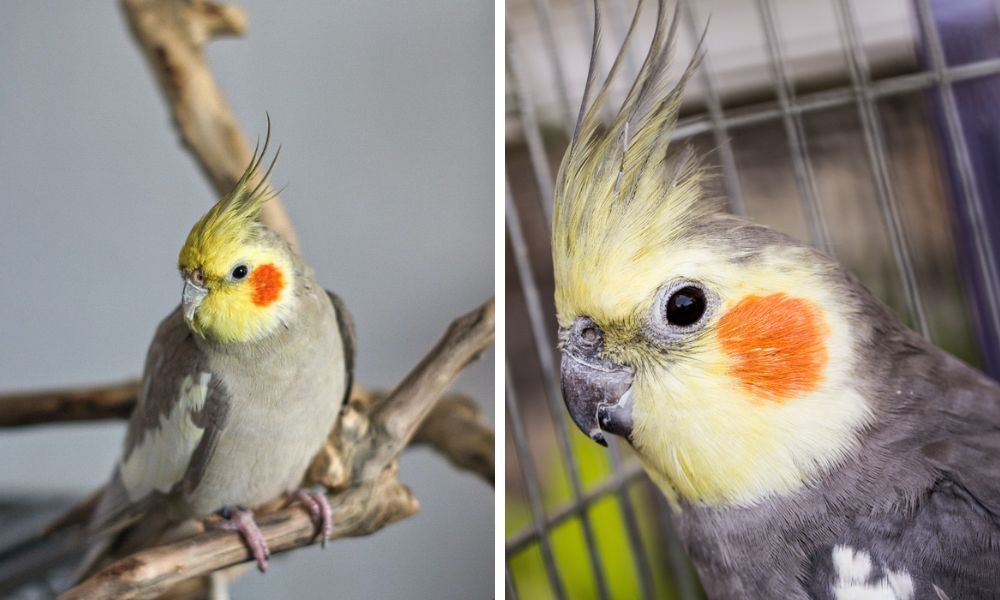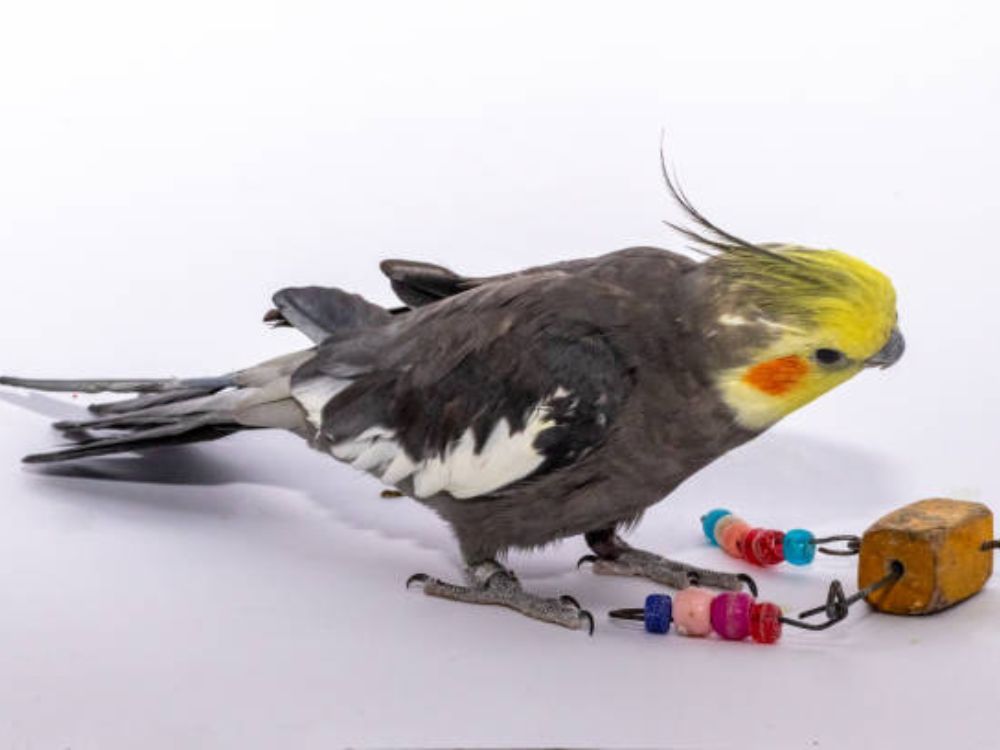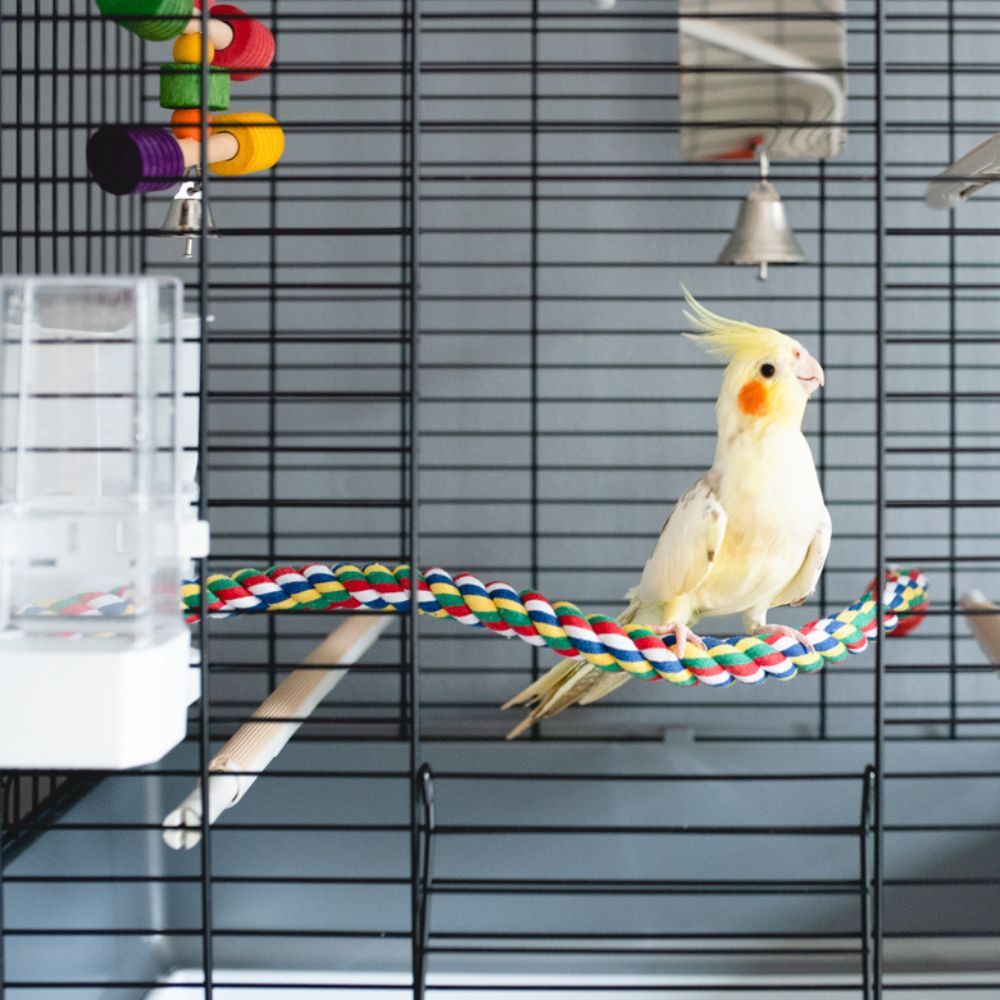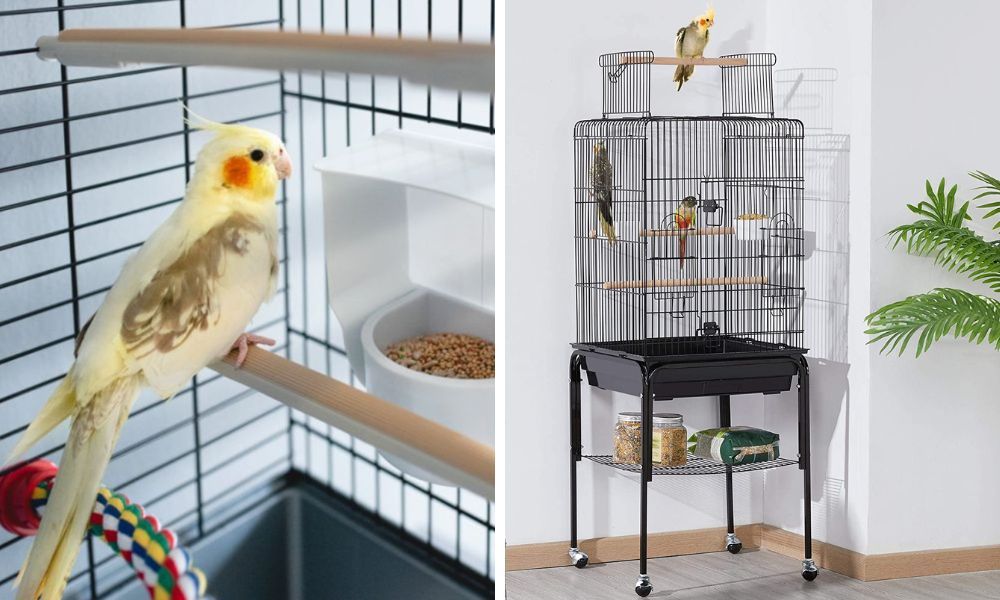Creating the Perfect Cockatiel Cage Environment
Cockatiels are such amazing birds and deserve the best environment possible. Discover how to set up a great cage for your cockatiel that will make them happy and healthy!

Are you a proud owner of a feathery friend who loves to chat and whistle? Cockatiels are a popular pet bird among bird lovers for their charming behavior and friendly nature. As a responsible bird owner, it is your responsibility to provide a comfortable and stimulating environment for your birdie to flourish. One of the essential things to take care of is their cage environment. The right bird cage environment can affect a cockatiel's health, behavior, and overall wellbeing.
Owning a cockatiel is an incredibly rewarding experience. Not only are these birds beautiful and friendly, but they also make wonderful companions. However, to ensure your bird's health and safety, it's important that you create an optimal environment for them in their cage. Let’s take a look at what your cockatiel needs in their cage for a happy and healthy life.
Food and Water Dishes
Cockatiels need both food and water dishes in their bird cages at all times. Deciding on the location of the food bowl is also important, the cockatiel feels the most vulnerable when they are on the ground. Make sure that these dishes are deep enough so that any seeds or other food won't get kicked out onto the floor of the bird cage. Also, opt for stainless steel dishes as plastic ones can easily corrode due to exposure from moisture or urine in the air inside your bird's cage. Finally, keep an eye on the amount of food being eaten by your bird as overeating can lead to obesity which can result in serious health issues down the road.
Perches and Toys
Perches are important for your cockatiel as they need something to stand on while inside their bird cage. It's best to buy several perches of different sizes so that your bird can have multiple options. Perches should also be made of natural materials like wood or rope since they're more comfortable than metal bars. Additionally, provide plenty of toys for your bird to play with and explore in order to keep them entertained throughout the day. This will help prevent boredom, which can lead to bad behavior like excessive screeching or feather picking.

The bird cage accessories can make or break your bird's cage life. Invest in a variety of fun and interactive toys, perches, and swings to provide physical and mental stimulation. Natural wood perches of varying sizes and textures will help promote healthy feet and exercise. Place the perches at different levels to mimic their natural habitat. A shallow dish for bathing will encourage good hygiene and fresh water for drinking and bathing.
Size Matters
The first rule of thumb is to consider the size of the cage. The size cage your bird needs depends on the size and breed of the bird. The larger their wingspan, the larger the cage should be. Cockatiels are active birds and require ample space to move, play, and fly around. A spacious cage will also help prevent boredom and promote physical and mental health. . A recommended cage size for a single cockatiel is 24 inches wide, 18 inches deep, and 24 inches high. However, the bigger, the better. Cockatiels love to climb on the bars of their cages, try to find a cage with horizontal bars rather than vertical ones.
Cage Location
The placement of the birdcage is crucial for your feathered friend's comfort and happiness. Cockatiels are social birds and enjoy being around their flock. Place the cage in a central location in the house where they can interact with humans and pets. Avoid placing the cage in a noisy or drafty area, near the kitchen or bathroom, or in direct sunlight. Maintain a stable temperature between 68-72 degrees Fahrenheit.

Cleanliness is Next to Birdliness:
Maintaining a clean cage environment is vital for your bird's health and happiness. Cockatiels are susceptible to respiratory problems, and fecal matter and food debris can harbor bacterial growth. Clean the cage once a week and spot-clean daily. Remove any uneaten food and dirty water promptly. Use bird-safe disinfectants and avoid harsh chemicals that can harm your bird.
It's essential that you keep your bird's cage clean at all times if you want them to stay healthy and happy. Make sure to remove any uneaten food or droppings daily and do a full clean with soap and water once every week or two weeks (depending on how messy your bird is). This will help prevent bacteria build up as well as potential illnesses caused by parasites like mites or lice that might be living inside your bird’s cage without you knowing it! Additionally, it will help maintain good hygiene levels inside cockatiel cages which will benefit both you and your pet bird!
Outside Cage Time:
Cockatiels enjoy their freedom and require outside cage time to socialize, explore, and stretch their wings. Create a safe bird-proofed environment for your bird to fly freely outside of the cage. Supervise them during outside cage time and beware of potential hazards such as toxic plants, open windows, and cats or dogs.
Perfect Cockatiel Cage Environment FAQs
Below we put together frequently asked questions so that you can make an informed decision about what is the best for you feathered friend.
Where is the best place for a cockatiel cage?
The best place for a cockatiel cage is in a quiet, low-traffic area of your home where they can feel secure and comfortable. Avoid placing the cage in areas where they may be exposed to drafts or direct sunlight, as well as areas with high humidity or temperatures. It's also important to place the cage away from any potential hazards, such as doors or windows, and keep it out of reach of other pets or young children. Additionally, make sure to provide your cockatiel with plenty of opportunities for exercise and socialization outside of their cage.
What is the ideal room temperature for cockatiels?
The ideal room temperature for cockatiels is between 65-80°F (18-27°C). Cockatiels are sensitive to temperature extremes and may become distressed in temperatures above or below this range. During colder months, it's important to make sure their living space is warm enough by means of appropriate heating, such as a space heater or heating pad. It’s also important to avoid placing the cage close to exterior walls or windows that might be drafty. It's important to monitor and regulate the temperature in your cockatiel's living space to ensure their comfort and well-being.
What do you put in the bottom of a cockatiel cage?
There are several options for the bottom of a cockatiel cage, including:
Newspaper: This is a common and inexpensive option that allows for easy cleanup. Simply line the bottom of the cage with fresh newspaper and replace it regularly.
Cage liners: These are specially designed liners that fit into the bottom of the cage and can be replaced when soiled.
Cage tray: Some bird cages come with a removable tray that can be lined with newspaper, a cage liner, or other bedding material.
Shredded paper: Shredded paper can be used as a bedding material for cockatiels but should be changed frequently as it can become messy and unhygienic if left for too long.
Wood shavings: Wood shavings should be avoided as they can be harmful if ingested by your cockatiel. If you do choose to use wood shavings, ensure they are from untreated wood and dust-free.
No matter what bedding material you choose, it's important to clean the bottom of the cage regularly to prevent the buildup of bacteria and odor.
Do cockatiels prefer warm or cold?
Cockatiels prefer a moderate climate between 65-80°F (18-27°C), which is neither too warm nor too cold. They can become distressed and uncomfortable if the temperature falls outside of this range. During extreme temperatures, it's important to regulate the temperature in your cockatiel's living space with appropriate heating or cooling, such as a space heater or fan. It's also essential to keep the cage out of direct sunlight and away from drafts to ensure their comfort and wellbeing.
Should I cover my cockatiels cage at night?
Covering a cockatiel's cage at night can be beneficial for their sleeping patterns and overall health. It can help create a quiet and dark environment that mimics their natural sleeping conditions in the wild. Cockatiels need 10-12 hours of sleep per night, and covering their cage can help regulate their sleeping schedule and prevent disruptions from external stimuli such as lights or sounds. However, it is important to make sure that the cover does not completely block airflow in the cage and that it is secure and will not pose a strangulation risk to your bird.

At the end...
In conclusion, creating the perfect cage environment for your cockatiel requires thoughtful consideration of their needs and behavior. A spacious, engaging, and clean environment paired with outside cage time will promote a happy and healthy life for your feathery friend. Remember, a happy bird is a chirpy bird. Happy nurturing!
Creating an optimal environment for a cockatiel is essential if you want them to live a long and healthy life with you as their companion! With some careful consideration about perches, toys, food/water dishes, and cleanliness levels inside their cages - you can ensure that everything is taken care of properly so that your pet cockatiel has all the necessary items needed for a happy life! With this knowledge in mind, go ahead and create the perfect home away from home for your beloved pet by taping the link below!

